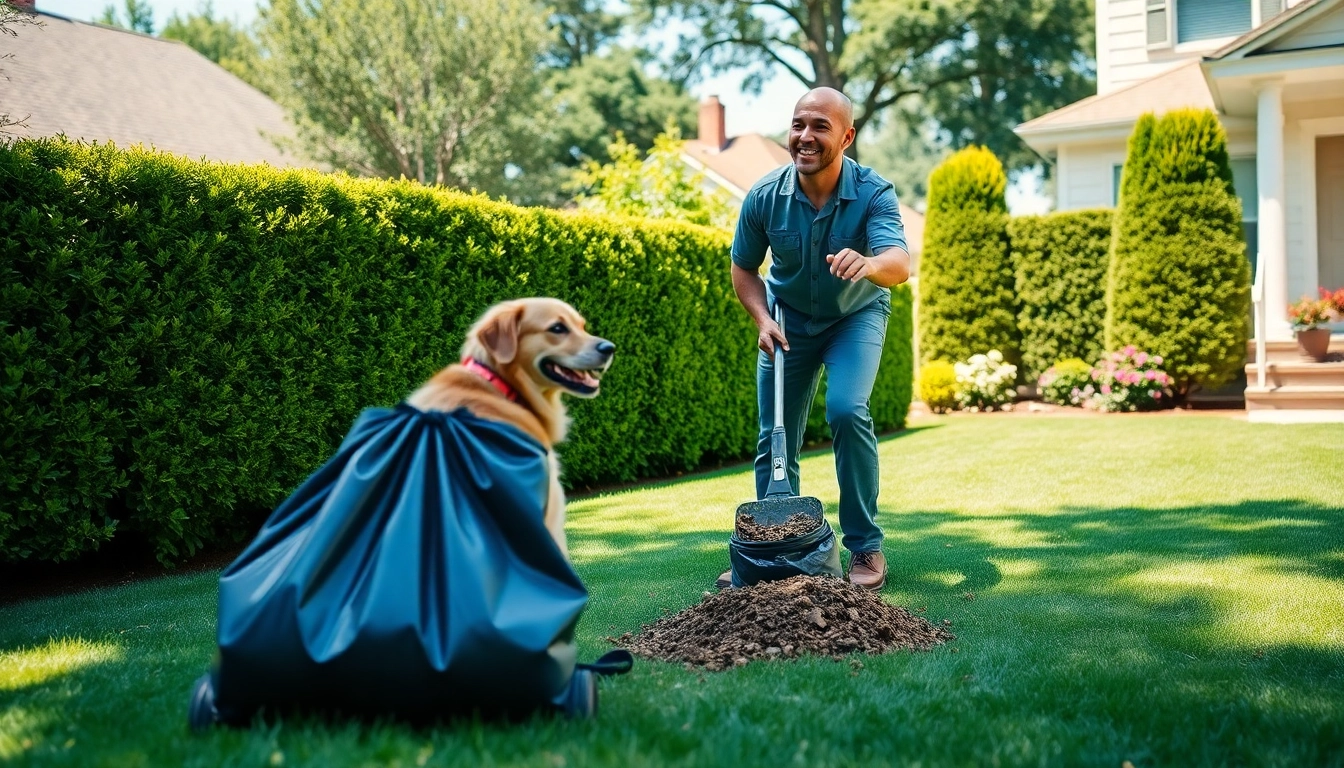Understanding the Role of a Relationship Coach
Defining Relationship Coaching
Relationship coaching is a professional service aimed at helping individuals and couples navigate the complexities of their intimate relationships. It focuses on fostering communication, understanding, and connection to help clients find healthier dynamics in their interactions. Unlike therapy, which often delves into past traumas and psychological issues, relationship coaching is more goal-oriented and future-focused. Coaches work alongside clients to identify obstacles, set goals, and develop actionable strategies to improve their relationships.
Benefits of Working with a Relationship Coach
The advantages of engaging with a relationship coach are multifaceted. First, clients often gain clarity about their relationship goals. This can be particularly beneficial for those feeling lost or uncertain about their partnership’s direction. A relationship coach provides a safe space to express feelings without judgment and can offer valuable insights based on experience and training.
Another key benefit is the enhancement of communication skills. Coaches teach clients how to express their needs effectively, which can dramatically alter the dynamics of a relationship. Equally important is the development of conflict resolution techniques; learning how to manage disagreements constructively can lead to healthier interactions and stronger partnerships.
Engaging with a coach empowers clients to build more fulfilling and harmonious relationships, ultimately leading to greater life satisfaction.
Common Misconceptions about Relationship Coaching
Despite the clear benefits, misconceptions about relationship coaching abound. One common myth is that coaching is solely for couples in crisis; in reality, it can be advantageous for anyone looking to enhance their relational skills. Another misconception is that relationship coaches are merely ‘relationship advisors’ or ‘matchmakers’, whereas their role encompasses much broader therapeutic strategies that support personal growth and relational health.
Additionally, some people may believe that coaching is an admission of failure or weakness, but seeking help from a relationship coach reflects strength, courage, and a commitment to growth. It’s essential to recognize that seeking guidance is a proactive step towards a better and more satisfying relationship.
Finding the Right Relationship Coach for You
Key Qualities to Look For in a Relationship Coach
When searching for a relationship coach, identifying key qualities is crucial to ensure a good match. Look for someone who possesses strong interpersonal skills, as empathy and communication style are critical in establishing rapport. A good coach should also be accredited or certified, providing assurance of their educational background and training.
Additionally, experience in various relationship dynamics is vital. Coaches who have worked with diverse couples will likely offer a broader perspective and effective strategies tailored to your unique circumstances. Finally, consider a coach’s specialty area; whether they focus on conflict resolution, communication skills, or individual growth, aligning their expertise with your needs can significantly impact your coaching experience.
Questions to Ask Potential Relationship Coaches
As you evaluate potential coaches, asking the right questions can clarify their approach and help you gauge compatibility. Start with inquiries about their coaching philosophy: “What is your approach to coaching couples?” This question can provide insight into whether their methodology aligns with your expectations and needs.
Also, ask about their experience: “Can you share examples of past clients you’ve helped?” Their responses can showcase their track record and effectiveness. Furthermore, inquiring about how they measure success can also illuminate whether their outcomes resonate with your personal goals. Finally, don’t hesitate to address logistics, such as session frequency, duration, and fees—these practical details will greatly influence your coaching journey.
Understanding Different Coaching Styles
Coaches often have varying styles that reflect their methodologies and experiences. Some may adopt a structured approach, where clients follow a defined program or set of guidelines, while others may prefer a more flexible style, allowing for spontaneous discussion and exploration of issues as they arise. Understanding these different styles can help you select a coach who complements your preferred learning and engagement methods.
Furthermore, some coaches may focus on cognitive behavioral techniques, which emphasize changing unhelpful thinking patterns and behaviors, while others may lean towards emotion-focused strategies, which prioritize understanding and managing emotions during conflicts. Understanding these nuances can help clients choose a coaching style that resonates with their personality and relationship goals.
Building Healthy Relationships with Coaching Techniques
Effective Communication Strategies
Effective communication is at the cornerstone of any healthy relationship. A relationship coach can equip clients with various tools to improve their communication skills, making it easier for partners to express themselves and understand each other. One vital strategy is the use of “I” statements—phrases that allow individuals to share their feelings without blaming or criticizing their partner. For example, instead of saying “You never listen to me,” one might say, “I feel unheard when you don’t respond to my concerns.” This subtle shift in language can prevent defensiveness and promote constructive dialogue.
Additionally, active listening techniques encourage partners to fully absorb what the other is saying. Techniques could include summarizing what the partner said before responding or asking clarifying questions to ensure understanding. By utilizing such strategies, couples can significantly enhance their relational communication.
Conflict Resolution Methods
Conflict is an inevitable part of any relationship, but how couples manage disagreements can significantly influence their partnership’s sustainability. Coaches can provide clients with strategies to tackle conflicts constructively rather than destructively. One effective method is to establish ground rules for discussions—such as agreeing to avoid shouting and personal attacks. This sets a tone of respect and safety during potentially heated conversations.
Another successful technique is the concept of “time-outs.” When emotions run high, taking a break to cool off can prevent escalation and provide time for reflection. Coaches often guide partners in selecting a designated time to reconvene and address the issue calmly. Such practices instill the understanding that working through differences is a collaborative process, not a competition.
Setting Realistic Relationship Goals
Goal setting is essential for any successful relationship coaching process. Coaches often encourage clients to establish realistic and achievable goals that reflect their values and desires. This could range from improving communication within a specific timeframe to planning regular date nights to foster connection.
Once identified, coaches help clients break down larger goals into smaller, actionable steps. For example, if a couple’s goal is healthier communication, they may start with weekly discussions about their emotional well-being. Such incremental progress not only makes significant changes more manageable but also helps build confidence in the relationship’s ability to evolve positively over time.
The Coaching Process: What to Expect
Initial Consultation and Assessment
The coaching process typically begins with an initial consultation where the coach assesses each partner’s relationship dynamics and individual perspectives. During this session, the coach may ask detailed questions about the relationship’s history, communication patterns, and specific challenges that have arisen. This comprehensive understanding allows the coach to tailor the approach suited to the couple’s unique situation.
Furthermore, coaches may also encourage partners to fill out questionnaires or engage in reflective exercises that illuminate individual feelings and needs. This assessment phase is fundamental in shaping the goals of the coaching process and creating a solid foundation for future sessions.
Developing a Customized Coaching Plan
Based on insights gathered during the initial assessment, the relationship coach collaborates with the couple to develop a customized coaching plan that addresses their identified concerns and goals. This plan may include specific coaching techniques, frequency of sessions, and methods for tracking progress. An effective plan is always flexible and subject to adjustments based on the couple’s evolving needs.
Coaches often implement regular check-ins to measure how well couples are adhering to the plan and whether it remains relevant to their circumstances. Such adaptability ensures that the coaching remains effective and aligned with the couple’s growth.
Tracking Progress and Making Adjustments
Progress tracking is a vital component of the coaching journey. Coaches typically utilize various strategies to evaluate the advancements being made, which might include follow-up assessments or reflective exercises at the beginning of each session to review successes and challenges. This ongoing evaluation not only highlights areas of improvement but also reinforces positive behaviors, motivating couples to continue striving for their goals.
Should shortcomings or obstacles arise, the coach is responsible for guiding couples in readjusting their strategies. This may involve revisiting established goals, trying new techniques, or even deepening the exploration of certain issues. Ultimately, the goal of tracking progress is to promote sustained relational development and long-term satisfaction.
Success Stories: Transformative Experiences with a Relationship Coach
Couples Who Found Lasting Solutions
Many couples have experienced profound transformations through the assistance of a relationship coach. Stories abound of partners who confronted underlying issues previously suppressed, resulting in newfound emotional intimacy and connection. For instance, one couple may have entered coaching feeling disconnected, with recurring arguments about finances. Through targeted coaching, they learned effective communication techniques that allowed them to express their individual concerns about money management—ultimately leading to collaborative budgeting systems and a deeper understanding of each other’s financial values.
Such success stories highlight the potential for growth and enriched connection that coaching can facilitate, showcasing that with dedication and the right support, couples can thrive.
Individual Growth through Coaching
Coaching is not solely about couple dynamics; individual growth is also an integral outcome. Many clients report significant personal development as they learn to express their needs, set boundaries, and engage in self-reflection. For example, a client who once struggled with communication might find they’ve developed a newfound confidence in articulating their feelings—improving not only their romantic relationships but their interactions in other areas of life as well.
Such personal growth underscores how relationship coaching can serve as a catalyst for broader life transformations, enabling individuals to foster healthier connections beyond romantic partnerships.
Moving Forward After Coaching
As the coaching process comes to a close, clients are typically left with the tools and strategies they’ve learned, enabling them to maintain healthy relationship practices independently. Coaches often prepare clients for this transition by addressing potential future challenges and emphasizing the importance of ongoing communication and reflection. Some clients may choose to engage in periodic check-ins to maintain accountability, while others move forward confidently, empowered by the insights gained during their coaching journey.
Ultimately, the aim is to equip clients with the competence and confidence to navigate their relationships successfully post-coaching—creating lasting change that continues to flourish.


